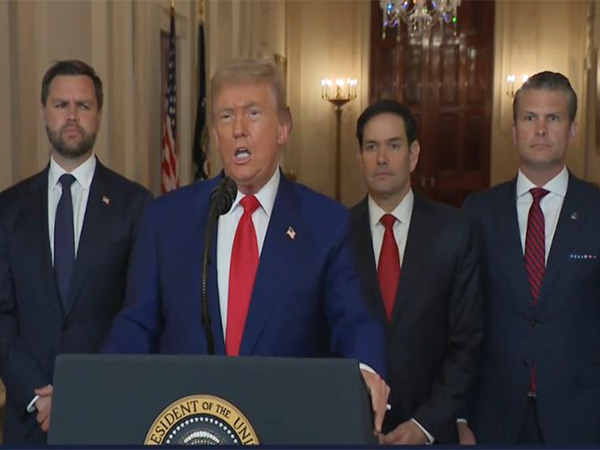Trump's Role in Middle East Tensions: A New Era of Conflict
U.S. President Donald Trump intervened militarily by approving airstrikes on Iran, joining Israel in a major conflict. This marks a major foreign policy gamble with potential risks, including escalation in the Middle East and unforeseen retaliations, despite Trump's calls for peace.

In a significant shift in U.S. foreign policy, President Donald Trump authorized airstrikes on Iran's nuclear sites, joining Israel in military action against a long-standing adversary. This decision contradicts Trump's previous stance of avoiding major military interventions abroad.
The strikes, targeting Iran's heavily fortified nuclear installations, are considered Trump's most substantial foreign policy gamble, fraught with risks of potential escalation. The move could provoke Iran into retaliatory actions, potentially leading to a broader conflict encompassing key geopolitical and economic interests in the region.
Experts warn that while the strikes have temporarily set back Iran's nuclear capabilities, they might inadvertently encourage Tehran to pursue nuclear armament as a form of deterrence. Analysts suggest that the Iranian response remains uncertain, with potential retaliatory measures against U.S. and Israeli targets.
(With inputs from agencies.)
- READ MORE ON:
- Trump
- Iran
- airstrikes
- nuclear
- Israel
- Middle East
- foreign policy
- conflict
- retaliation
- peace
ALSO READ
Escalating Tensions: Israel Strikes Houthi Targets in Yemen
Escalation in the Red Sea: Israel Strikes Houthi Ports
Escalating Tensions: Israel and Houthi Rebels Clash in Strategic Red Sea Region
Israel launches airstrikes targeting Yemen's Houthi rebels, Houthis launch missile at Israel.
Red Sea Tensions: Israel Strikes Houthi Ports Amid Ongoing Clash










